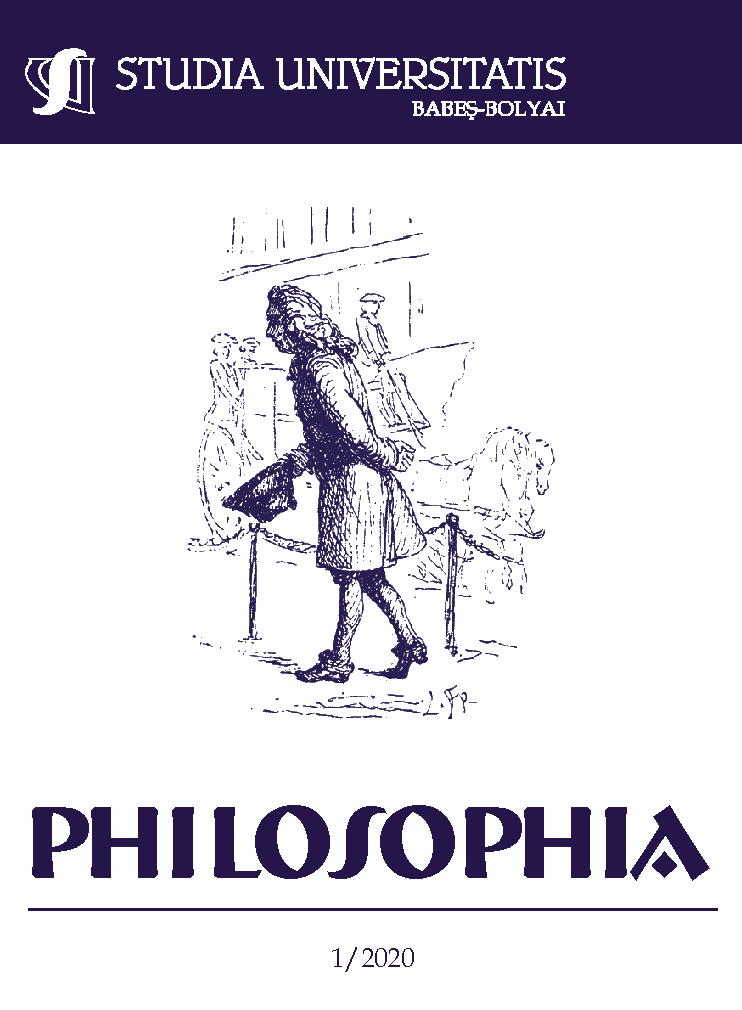FILM AS A METHOD OF SCIENTIFIC RESEARCH: A LABORATORY FOR POST-MODERN PRACTICES
DOI:
https://doi.org/10.24193/subbphil.2020.1.16Keywords:
artistic research, cinema, caméra-stylo, complexity, postmodernismAbstract
This article posits that cinematic language should be reconsidered and validated as a means of research in the scientific world. It should no longer be seen as simply a disseminator of information, but also as a means of investigating reality. The new trends in cinema, specifically fiction-documentaries use various methods to investigate reality. These methods could be useful in a broader sense, namely in cross-disciplinary scientific research. The postmodern approach to the notion of complexity or narrative knowledge creates a favorable framework for a paradigm shift concerning the analytical and quantifying method of scientific research. Cinema as a medium can be used as a tool and an invisible technology capable of shaping our ideas.
References
BOOKS:
ARNHEIM, Rudolf, Film as Art, University of California Press, Berkeley, Los Angeles, 1957.
BAUMAN, Zygmunt, Liquid modernity, Polity Press, Cambridge, UK, 2000.
BELL, Daniel, The Coming of Post-Industrial Society: A Venture in Social Forecasting, Basic Books, New York, 1999.
CĂLINESCU, Matei, Cinci fețe ale modernității. Modernism, avangardă, decadenţă, kitch, postmodernism , trad. Tatiana Pătrulescu, Radu Ţurcanu, Polirom, Iași, 2005.
CHILLIERS, Paul, Complexity & Postmodernism: Understanding Complex Systems, Routledge, London and New York, 1998.
DEWDNEY, Andrew, RIDE, Peter, The New Media Handbook, Routledge, London and New York, 2006.
FULGER, Mihai, „Noul val” în cinematografia românească, Grup editorial Art, București, 2006.
KUHN, Thomas S., The Structure of Scientific Revolutions, University of Chicago Press, Chicago, 1970.
LYOTARD, Jean-François, The Posmodern Condition: A Report on Knowledge, trad. Geoff Bennington, Brian Massumi, Manchester University Press, Manchester UK, 1984.
McLUHAN, Marshall, Understanding Media. The Extensions of Man, ed. Terrence Gordon-critical edition, Ginko Press, 2003.
POSTMAN, Neil, Technopoly: The Surrender of Culture to Technology, Vintage Books Edition, New York, 1993.
TAYLOR, Richard and CHRISTIE, Ian, eds., THE FILM FACTORY. Russian and Soviet Cinema in Documents 1896-1939, Routledge, London and New York, 1988.
ARTICLES:
ASTRUC, Alexandre, “The Birth of a New Avant-Garde: La Caméra-Stylo”, in The New Wave, ed. Peter Graham. Trans. from Ecran Français 144, 30 March 1948, p.20. [online], http://soma.sbcc.edu/Users/DaVega/FILMST_101/FILMST_101_FILM_MOVEMENTS/FrenchNewWave/cameraStylo.pdf , accesat în 08.07.2011.
BEHN, Beatrice, “Touch Me Not(2018)”, KinoZeit [online], https://www.kino-zeit.de/film-kritiken-trailer/touch-me-not-2018, accesat 10.02.2020.
EHRLICH, David, “‘Touch Me Not’ Review: Adina Pintilie’s Berlinale Winner Is a Sexual Odyssey Stuck Between Purity and Prurience”, IndieWire, Mar. 15.2018 [online] https://www.indiewire.com/2018/03/touch-me-not-review-adina-pintilie-berlin-international-film-festival-2018-1201939766/, accesat 10.02.2020.
LLOPART, Salvador, “‘Touch Me Not’: ¿Hablamos de sexo?”, La Vanguardia, 02.22.218, [online], https://www.lavanguardia.com/cultura/20180222/44985908041/touch-me-not-berlinale.html, accesat 10.02.2020.
MARINETTI, F.T., Corra Bruno, Settimelli Emilio, Ginna Arnaldo, Balla Giacomo, Chiti Remo, “The Futurist Cinema”(1916), trad R. W. Flint. http://soma.sbcc.edu/users/DaVega/FILMST_113/Filmst113_ExFilm_Movements/Futurism/F, accesat 09.07.2011.
SCOTT, A.O., “‘Touch Me Not’ Review: Our Bodies Examined”, The New York Times, Jan. 09. 2019 [online], https://www.nytimes.com/2019/01/09/movies/touch-me-not-review.html, accesat 10.02.2020.
Downloads
Published
How to Cite
Issue
Section
License
Copyright (c) 2020 Studia Universitatis Babeș-Bolyai Philosophia

This work is licensed under a Creative Commons Attribution-NonCommercial-NoDerivatives 4.0 International License.





